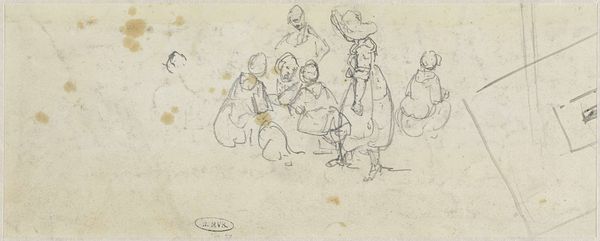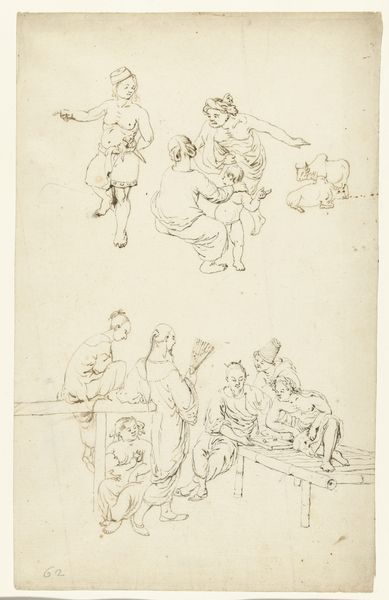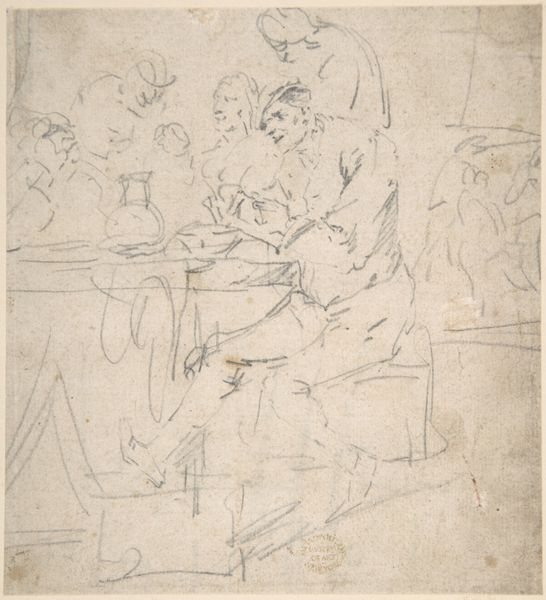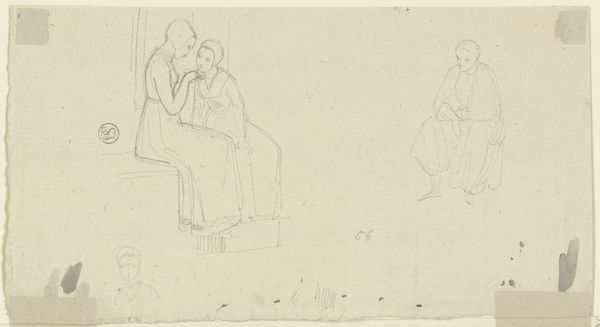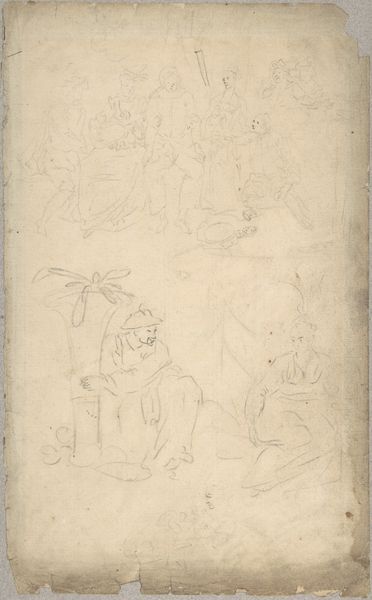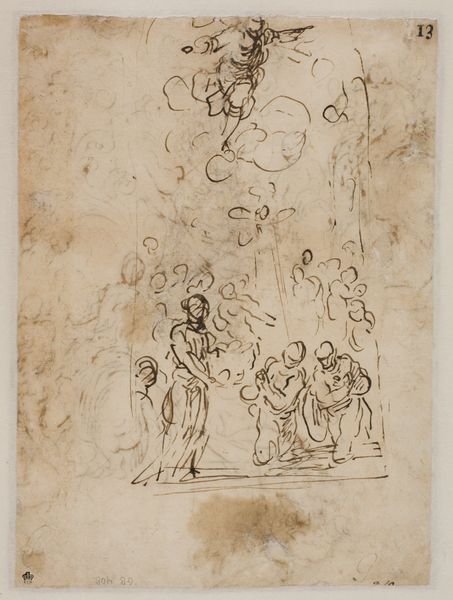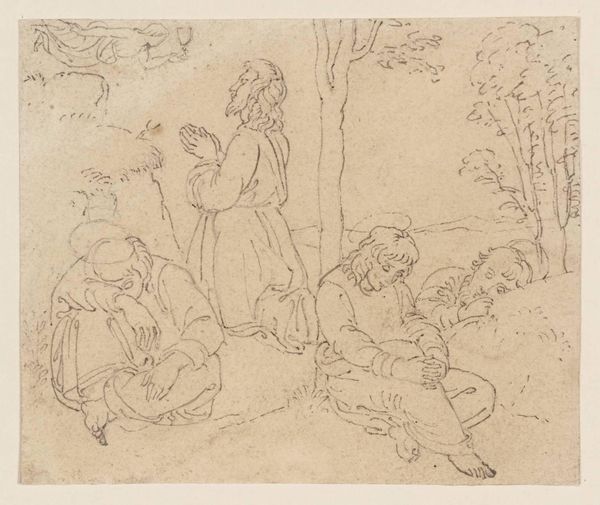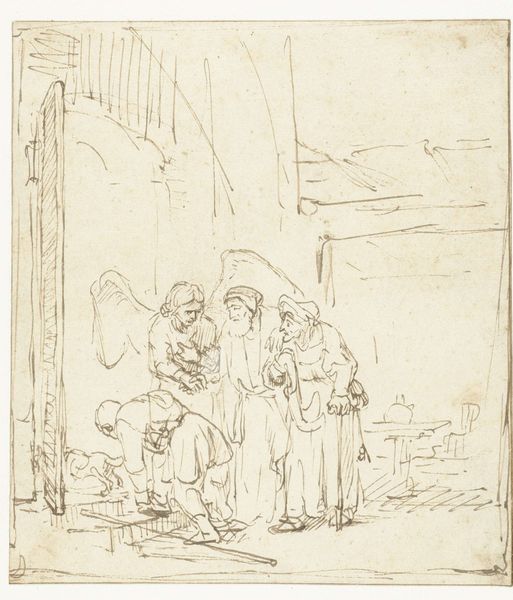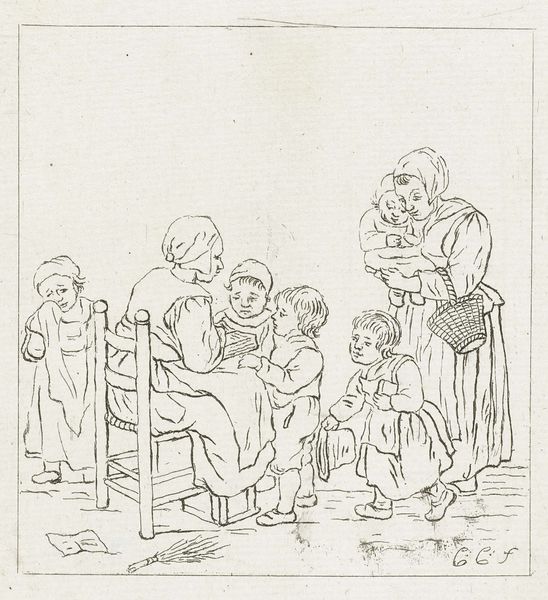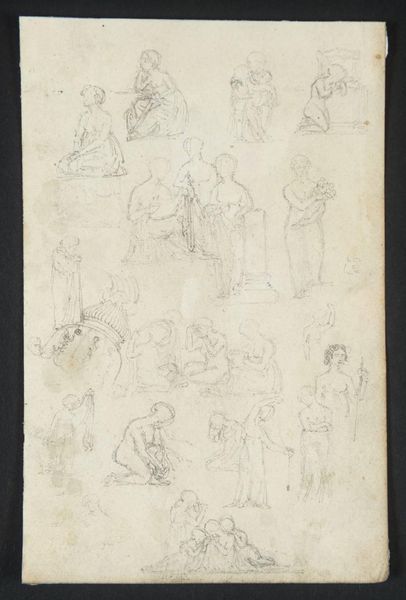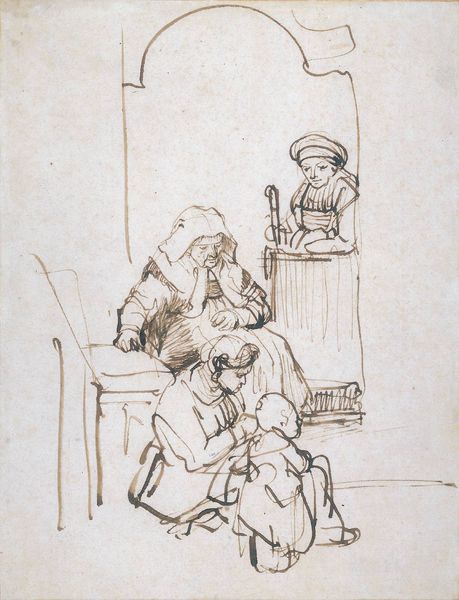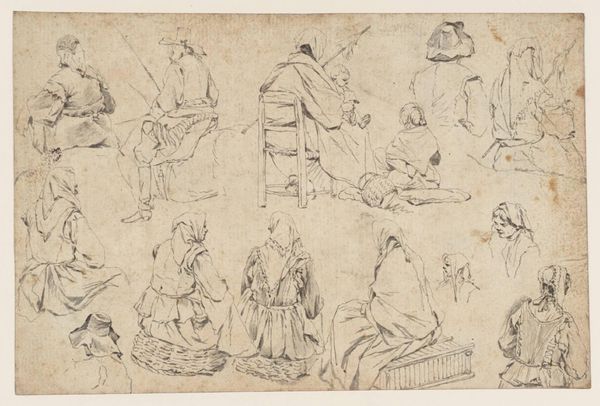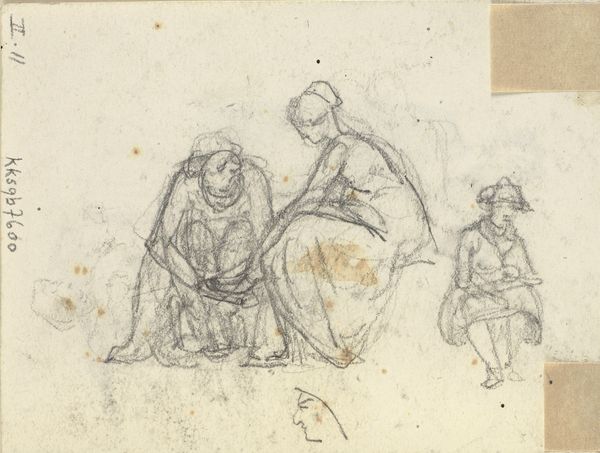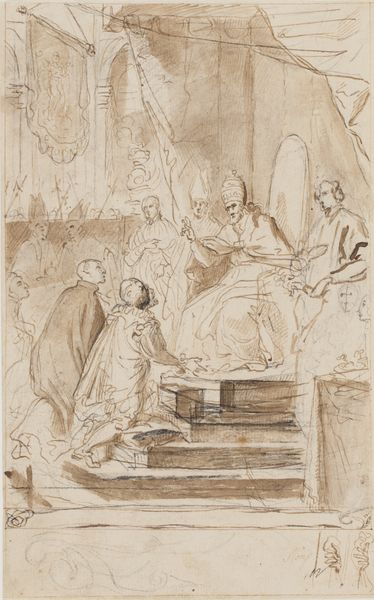
drawing, paper, pencil, pen
#
portrait
#
drawing
#
figuration
#
paper
#
group-portraits
#
pencil
#
15_18th-century
#
line
#
pen
#
genre-painting
#
realism
Dimensions: height 184 mm, width 150 mm
Copyright: Rijks Museum: Open Domain
Curator: This drawing is entitled “Studies van moeders en kinderen,” or "Studies of Mothers and Children," by Christina Chalon, dating from 1771. It resides here at the Rijksmuseum and is a work in pen and pencil on paper. Editor: Wow, what strikes me first is the quiet intimacy. It’s a bit like stumbling upon a candid scene—a whispered conversation, a fleeting embrace, moments observed and sketched with love and a slightly scratchy sort of fondness. Curator: I think that’s quite astute. Considering Chalon’s work within the context of 18th-century Dutch society reveals prevailing societal expectations for women, centered largely on domestic roles, motherhood, and moral virtue. These studies really tap into that ideology of domesticity, representing women primarily in their roles as caregivers and nurturers. Editor: There's an interesting dynamic though, right? We’re looking at studies—almost preparatory work. It doesn’t feel posed or overtly staged in the way a finished portrait of the time might. Instead, the medium of pen and pencil allow her to express this sort of spontaneity. Curator: Yes, precisely. The loose linework and multiple figures provide insights into the artistic process itself, challenging perhaps, later formal portraits that tended to idealize motherhood. We see studies of a woman holding flowers while a little child extends arms reaching up, other figures are focused downward towards other children. There’s an intentional gaze involved in creating this space that depicts women in their private sphere. Editor: It reminds me a little of found poetry, in a way, where beauty lies in the subtle observation of ordinary moments. Even now it feels like seeing an echo, not from another era, but perhaps some other quiet morning that mirrors my own. You know, just human connection at its most elemental. Curator: Absolutely. I think what Chalon achieves in this series of drawings is quietly radical. It allows us to contemplate the nuanced realities of women's lives within very particular social confines, which is certainly an idea we continue to engage with today. Editor: Exactly, it is also fascinating to think that maybe Chalon’s studies allow us to re-imagine the space between who people think we are, who people tell us to be and how that tension shows up in the day to day as quiet but ever-present negotiations of selfhood and purpose.
Comments
No comments
Be the first to comment and join the conversation on the ultimate creative platform.
